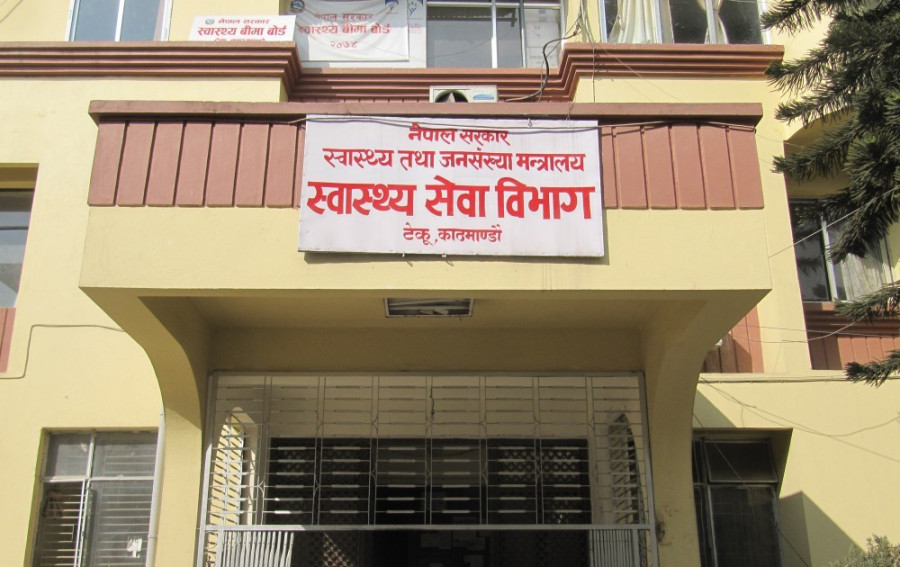Health
How an ambitious health plan went down the drain as authorities failed to implement it
A new report shows that two out of every three deaths in the country are caused by non-communicable diseases—heart disease, chronic obstructive pulmonary disease, lower respiratory infection, and stroke
Arjun Poudel
The multi-sectoral action plan 2014-2020 was prepared for the prevention and control of non-communicable diseases and was enforced some five years ago. But while the programme should have reached its end now, concerned agencies of the government are not even bothered about designating focal persons to implement the programmes.
Due to the apathy of the agencies, an ambitious action plan for controlling and preventing the burden of non-communicable diseases remains on paper only.
The action plan was prepared with the support of the World Health Organization, discussed extensively with key line ministries and stakeholders and endorsed by the government. The plan was anchored on an active participation of various sectors of the government in a whole-of-government and whole-of-society approaches.
“But we are unable to designate the focal person to implement the programmes,” Dr Bibek Kumar Lal, director at the Epidemiology and Disease Control Division, told the Post. “We are unable even to hold a full meeting of stakeholders.”
The action plan was based on various studies which show that non-communicable diseases are the emerging and leading causes of mortality and morbidity in Nepal. A new report published by the Nepal Health Research Council this year says that two out of every three deaths in Nepal are caused by non-communicable diseases—heart disease, chronic obstructive pulmonary disease, lower respiratory infection, and stroke.
According to the study Nepal Burden of Disease conducted in 2017, changing age structure and life-style—increasing sedentary behavior, tobacco and alcohol use, and unhealthy diets—are the main reasons for the rise in non-communicable diseases.
As per the action plan, 17 ministries and most agencies under them, provincial governments and local federal units are responsible for implementing the action plan. A high-level committee was formed under the chief secretary, and a steering committee was constituted with the health secretary as its leader. Multi-sectoral committees were supposed to be formed to work on prevention and control of non-communicable diseases at all three levels—national, provincial and district.
According to Lal, the Ministry of Health and Population had tasked his office with coordinating the programme in 2018. His office called a meeting of stakeholders, but the chief secretary himself did not attend the meeting. The health secretary tried to call a meeting but secretaries of other ministries are not interested to meet.
“All the stakeholders who were present in last year’s meeting agreed to designate a focal person within a week, but none of the ministries has implemented the decision so far,” said Lal.
According to Lal, the programme will expire next year and his office has been writing a report on the ambitious programme, which failed to be implemented in five years. The government needs another action plan for 2020 to 2025.
“This shows a lack of seriousness in the government agencies to implement the programme they enforced,” Dr Baburam Marasini said. “This also raises questions over the government’s commitment to the Universal Health Coverage and Sustainable Goal Targets.”
Dr Bikas Devkota, chief of the Policy Planning and Monitoring Division under the Health Ministry, said that the action plan failed to be implemented for various reasons—transition time for federal restructuring of the institutions, absence of focal persons in the ministries concerned, and lack of committees at the regional and local levels.
“All the concerned health agencies should come together and share the responsibility,” said Devkota, “The Health Ministry alone cannot do anything. Efforts of the Health Ministry are not sufficient to prevent and curb the burden of non-communicable diseases.”
***
What do you think?
Dear reader, we’d like to hear from you. We regularly publish letters to the editor on contemporary issues or direct responses to something the Post has recently published. Please send your letters to [email protected] with "Letter to the Editor" in the subject line. Please include your name, location, and a contact address so one of our editors can reach out to you.




 20.12°C Kathmandu
20.12°C Kathmandu















